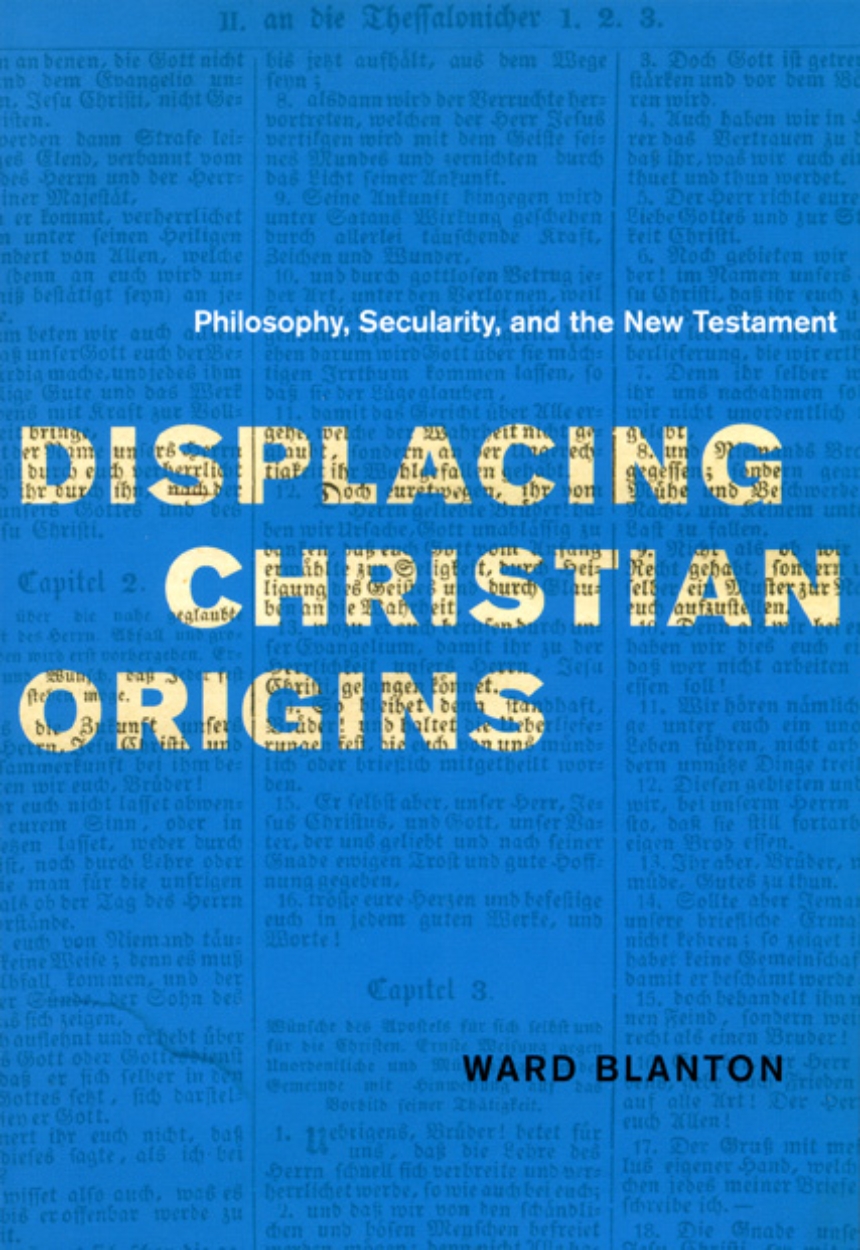Displacing Christian Origins
Philosophy, Secularity, and the New Testament
9780226056906
9780226056890
9780226056883
Displacing Christian Origins
Philosophy, Secularity, and the New Testament
Recent critical theory is curiously preoccupied with the metaphors and ideas of early Christianity, especially the religion of Paul. The haunting of secular thought by the very religion it seeks to overcome may seem surprising at first, but Ward Blanton argues that this recent return by theorists to the resources of early Christianity has precedent in modern and ostensibly secularizing philosophy, from Kant to Heidegger.
Displacing Christian Origins traces the current critical engagement of Agamben, Derrida, and Žižek, among others, back into nineteenth- and early-twentieth-century philosophers of early Christianity. By comparing these crucial moments in the modern history of philosophy with exemplars of modern biblical scholarship—David Friedrich Strauss, Adolf Deissmann, and Albert Schweitzer—Blanton offers a new way for critical theory to construe the relationship between the modern past and the biblical traditions to which we seem to be drawn once again.
An innovative contribution to the intellectual history of biblical exegesis, Displacing Christian Origins will promote informed and fruitful debate between religion and philosophy.
Displacing Christian Origins traces the current critical engagement of Agamben, Derrida, and Žižek, among others, back into nineteenth- and early-twentieth-century philosophers of early Christianity. By comparing these crucial moments in the modern history of philosophy with exemplars of modern biblical scholarship—David Friedrich Strauss, Adolf Deissmann, and Albert Schweitzer—Blanton offers a new way for critical theory to construe the relationship between the modern past and the biblical traditions to which we seem to be drawn once again.
An innovative contribution to the intellectual history of biblical exegesis, Displacing Christian Origins will promote informed and fruitful debate between religion and philosophy.
240 pages | 6 x 9 | © 2007
Philosophy: Philosophy of Religion
Religion: Christianity, Philosophy of Religion, Theology, and Ethics
Reviews
Table of Contents
Acknowledgments
Introduction
Interdisciplinary Maps of Religion and Secularity: Toward a Critical Present
Chapter One
Escape from the Biblical Aura: Hegel and Strauss on “Modern” Biblical Criticism
Chapter Two
The Mechanics of (Dis)Enchantment: Nietzsche and D. F. Strauss on the Production of Religious Texts in the Age of Industrial Media
Chapter Three
Paul’s Secretary: Heidegger’s Apostolic Light from the Ancient Near East
Chapter Four
Reason’s Apocalypse: Albert Schweitzer’s “Fully Eschatological” Jesus and the Collapse of Metaphysics
Conclusion
Displacing Christian Origins as Displacements of Religion and Secularity
Notes
Bibliography
Index
Introduction
Interdisciplinary Maps of Religion and Secularity: Toward a Critical Present
Chapter One
Escape from the Biblical Aura: Hegel and Strauss on “Modern” Biblical Criticism
Chapter Two
The Mechanics of (Dis)Enchantment: Nietzsche and D. F. Strauss on the Production of Religious Texts in the Age of Industrial Media
Chapter Three
Paul’s Secretary: Heidegger’s Apostolic Light from the Ancient Near East
Chapter Four
Reason’s Apocalypse: Albert Schweitzer’s “Fully Eschatological” Jesus and the Collapse of Metaphysics
Conclusion
Displacing Christian Origins as Displacements of Religion and Secularity
Notes
Bibliography
Index
